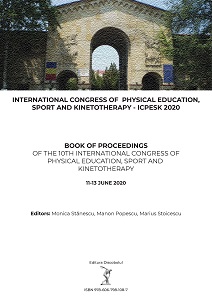PERSONAL CONTRIBUTIONS REGARDING SELECTION, IDENTIFICATION AND PROMOTION OF TALENTS IN FOOTBALL
PERSONAL CONTRIBUTIONS REGARDING SELECTION, IDENTIFICATION AND PROMOTION OF TALENTS IN FOOTBALL
Author(s): Arben KAÇURRI, Irakli QURKU
Subject(s): Social Sciences, Sociology, Sports Studies
Published by: Discobolul Publishing House
Keywords: selection; talent; football; training;
Summary/Abstract: The term “selection” has provoked disputes among various people, some of whom, for institutional reasons, defending the cause of a sport that enjoys great popularity and aims to attract all possible talents on the football field. From our point of view, football selection is not a unique, singular action. It has a lasting character and is carried out in several stages. The efficiency of the selection greatly depends on the quality of the training process and is largely conditioned by the way in which the particularities of growth and development of children and juniors are taken into account. By using the scientific selection process in football, the path to achieving remarkable (often incredible) performance becomes shorter. The selected individual undergoes a careful training process and tries to obtain maximum efficiency in the shortest time (depending on the biological potential). Also, the purpose of this paper is to improve the duration of the educational and training process, based on the improvement of the selection process correlated with the sports training stages in the football game. Selection and training have to be regarded according to the following training-type models: children, juniors III, juniors II, juniors I, which must take into account the criteria: health status, social condition, physical ability, body size, general motor skills, favourable motor skills, psychological ability, technical and tactical training, and game testing. We believe that, by contributing to the knowledge of the above-mentioned particularities, this paper eliminates the possibility of methodological errors that can have irreversible negative consequences."
- Page Range: 57-71
- Page Count: 15
- Publication Year: 2020
- Language: English
- Content File-PDF

